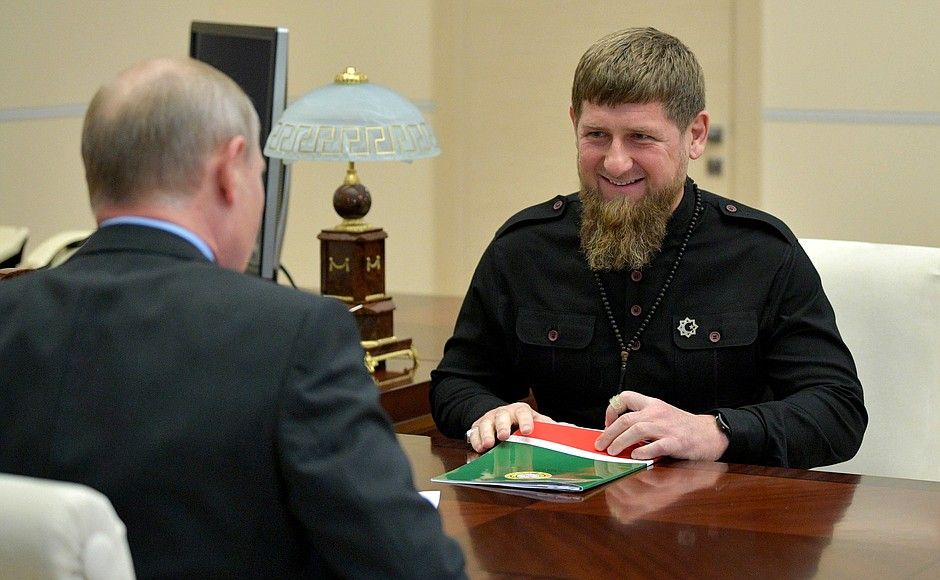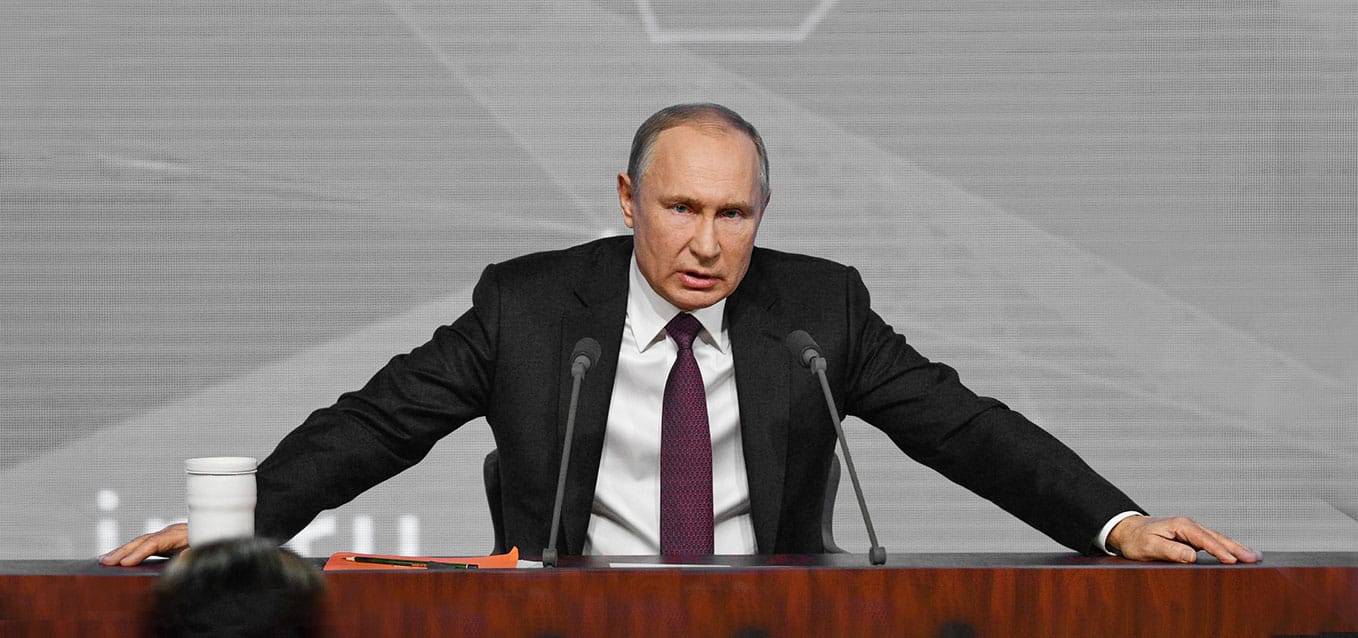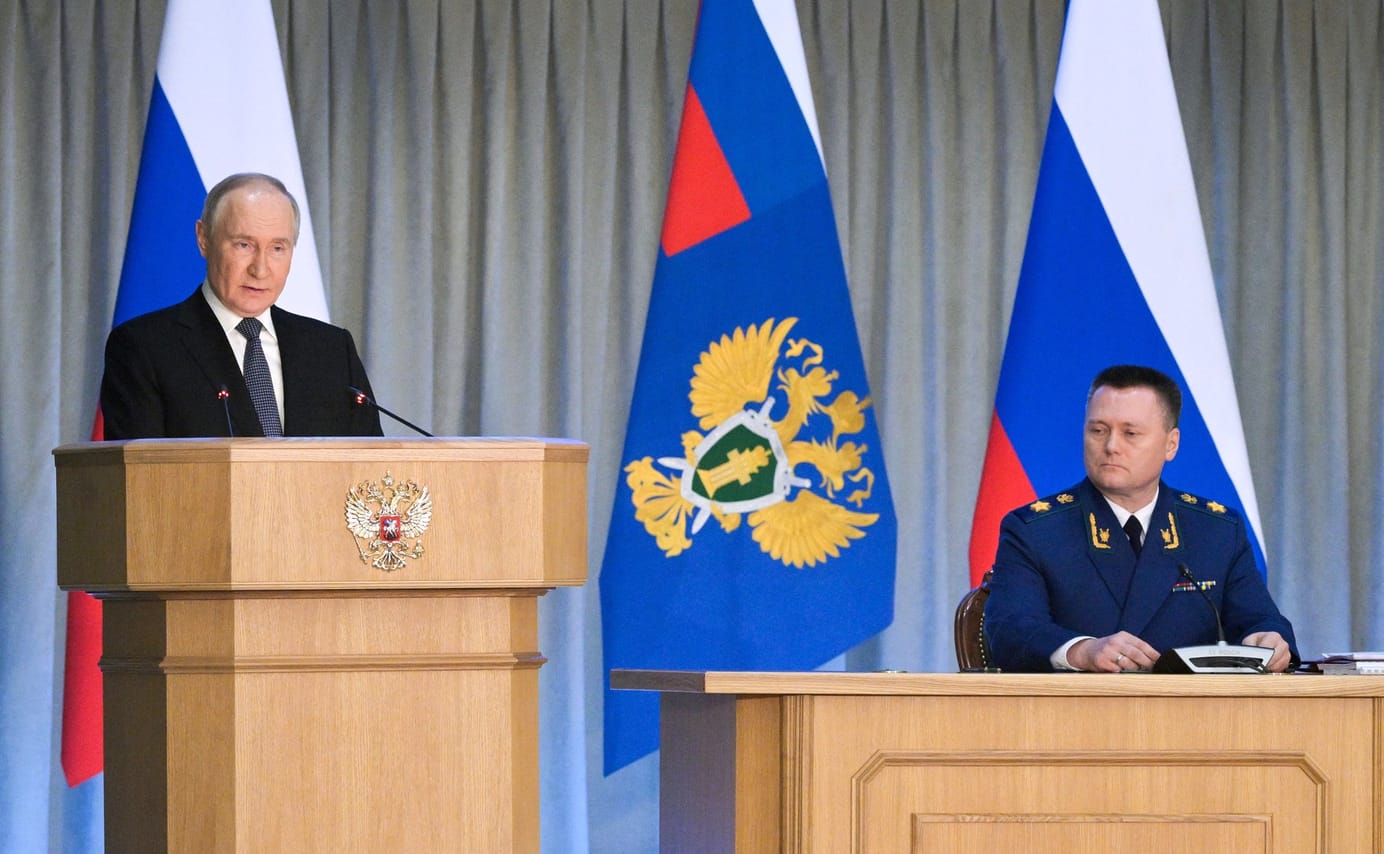
Kremlin asset seizures the new normal
Hello! This is Alexandra Prokopenko with your weekly guide to the Russian economy — brought to you by The Bell. In this newsletter we focus on the Kremlin’s decision to seize the Russian assets of two major foreign companies and what it means for the business climate and the other Western businesses who cannot — or will not — leave Russia. We also look at Friday’s interest rate hike and new Western sanctions on Russia.
Nationalization of Western assets heralds broader property redistribution
Finland’s Fortum and Germany’s Uniper saw their Russian assets seized by the Kremlin earlier this year. This week was the turn of France’s Danone and Denmark’s Carlsberg. It feels like we are witnessing the final chapter in the history of Western business in post-Soviet Russia. If the transfer of Fortum and Uniper’s energy assets to external management was explained as a response to the European Union’s treatment of Russian energy companies, there is no such obvious reason for the behavior toward Carlsberg and Danone and it likely reveals the Kremlin’s real intentions. This is direct nationalization — and opens the door to a new distribution of property in Russia.
What’s going on?
Russian President Vladimir Putin signed a decree Sunday transferring the Russian assets of Danone (the country’s second largest dairy producer) and Baltika (Carlsberg’s Russian subsidiary and the country’s second largest brewer) to the “temporary management” of the Federal Property Management Agency. The wording of the decree mimicked previous decrees issued for the seizure of the assets of energy companies Fortum and Uniper.
The Federal Property Management Agency quickly replaced executives at Danone and Baltika. Yakub Zakriyev, the nephew of Chechen leader Ramzan Kadyrov and the deputy prime minister and agriculture minister in the North Caucasus republic, was made the new head of Danone. Balikta got a more predictable boss — 70-year-old Taymuraz Bolloyev, a notable businessman in St. Petersburg in the 1990s and the de facto founder of Baltika. Bolloyev became a director of Baltika in 1991 and remained in charge until 2004. Under his leadership, the company was privatized in 1993 and sold to foreign investors. As deputy mayor of St. Petersburg at the time, Putin supervised that deal. After leaving Baltika, Bolleyev founded the BTK Group clothing company which, in 2021, became the sole supplier of clothing for the Russian Armed Forces. In 2009-2011, Bolloyev was in charge of state-owned Olimpstroi that carried out construction for the 2014 Sochi Olympics.
Bolloyev is also a business partner of members of the president’s inner circle. Along with Putin and his billionaire friend Arkady Rotenberg, Bolloyev is a director of St. Petersburg’s Yavara Neva judo club. That’s where Anatoly Rakhlin, Putin’s childhood judo coach, worked. Bolloyev also has a joint business with Putin’s closest friend, Yury Kovalchuk (he has a 10% stake in Gelenzhik airport where Kovalchuk’s Rossiya Bank owns 40%).
Why did it happen?
According to one of The Bell’s sources, the decree handing Danone and Carlsberg’s Russian assets to Kadyrov and Bolleyev was Russia’s response to Poland’s seizure of assets belonging to Russian billionaire Vyacheslav Moshe Kantor, owner of Akron Chemical and chairman of the European Jewish Congress.
Earlier this month, the Polish authorities announced that they would be taking control of Kantor’s 19.8% stake in local fertilizer producer Grupa Azoty. “Step by step we are eliminating the presence of Russians in the Polish economy, whether gaining independence from Russian energy resources or limiting Russian influence and capital,” said Polish Minister of Economic Development and Technology Waldemar Buda. Poland is the first country in Europe to pass legislation allowing such seizures.
In April, Putin signed decree № 302 (you can read it here), which obliges the Russian authorities to respond immediately to any actions affecting Russian assets in so-called “unfriendly” countries. Like other anti-sanctions laws adopted by Russia during the war in Ukraine, Putin’s decree leaves ample room for creative interpretation.
In the case of Fortum and Uniper, the logic was clearer. These companies were of strategic importance for the Russian economy and their “temporary nationalization” mirrored the German authorities’ decision to take charge of assets belonging to state-owned gas giant Gazprom and oil major Rosneft. The phrase “strategic importance for the Russian economy” used in the decree is conveniently vague: back in 2008 the Russian authorities drew up a list of 42 strategic sectors which, of course, included both energy and food.
It’s important to remember that Russia’s register of “unfriendly” countries, whose actions could prompt the Kremlin to respond with nationalization, does not distinguish between different EU states. All 27 countries are classed as one. This means that a “hostile” action against Russia in one country (e.g. Germany) could be met with a Kremlin response that affects an entirely separate EU member (e.g. Denmark or France).
Russian assets seized in the EU
The assets of Gazprom Germania and Rosneft were seized last year. Gazprom Germania operates 14% of Germany’s gas distribution network and 28% of its gas storage. In September, the German authorities handed 54.2% of the Schwedt refinery (one of the most advanced in Europe) to the state’s Federal Network Agency, as well as minority stakes in two other refineries. Rosneft contested this decision, but in March a German court ruled in favor of the authorities. The decision states that Rosneft’s assets were not nationalized, but that external management was vital to the smooth operation of the business. On April 20, the Bundestag amended a law on energy security, which permits the sale of a controlling stake in Schwedt without formal nationalization.
Many believed that influential Rosneft head Igor Sechin was behind the seizure of Fortum and Uniper: after they came under state control, ex-employees of Sechin’s companies were appointed to top management positions. “Sechin created the mechanism, and it was only a matter of time before he used it,” a federal official told The Bell this week. “After the German court verdicts, executing this mechanism was just a matter of technique.”
Putin’s role
The Russian president was “furious” when he heard about Poland’s seizure of Kantor’s assets, according to a source who heard this from a federal official. While Kantor cannot be described as part of Putin’s inner circle, the two have a long-standing relationship. Kantor, for example, testified against former Yukos boss Mikhail Khodorkovsky at his trial in the early 2000s. And Kantor gave a speech immediately before Putin’s address at a memorial event at the Yad Vashem complex in Jerusalem as recently as 2022. Since April 2022, Kantor has been under EU and U.K. sanctions. “The boss [Putin] doesn’t care about yachts and cars, but assets are sacred,” The Bell’s source said.
Another explanation for events was offered by the Financial Times. Citing sources, the newspaper alleged that Agriculture Minister Dmitry Patrushev, son of influential Security Council secretary Nikolai Patrushev, played a leading role in the expropriation of Danone and Carlsberg’s assets. “The minister wants to put his own people in charge of these businesses,” said one source.
However, the exact chain of events remains unclear. “Patrushev could have made a fuss, but the decision to transfer the assets was taken higher,” a Russian official told The Bell. He found it hard to identify the criteria by which Danone and Carlsberg were selected for expropriation, but suggested that both are widely recognized in Russia and generate a reliable cash flow.
Danone and Carlsberg are not just leaders in their industries. They are also major employers. According to the Association of European Business, Danone employs 10,000 staff at its Russian factories. Baltika has breweries in eight Russian cities, employing 8,000 people. Taking into account sub-contractors, the total number is in the tens of thousands.
What next?
After taking over Danone and Baltika, the Federal Property Agency has the right to change their structure, appoint a new board of directors and, most importantly, conduct an audit and come to its own assessment of the asset’s value. During this process, damaging findings might allow the asset to be sold off by court order. “Of course, nobody will act in the interests of the previous owners,” one source told The Bell.
As the war in Ukraine continues, Russia faces ever tougher Western sanctions and the risk of nationalization is rising for other foreign assets in the country. According to the Kyiv School of Economics, there are 1,400 foreign companies with legal entities in Russia. Of these, 255 have de facto exited the country and the remainder face a choice between winding down their business or sitting tight and trying to weather the storm. It’s hard to say who will be next in line for expropriation, but we can assume that, in addition to geopolitical motives, the Kremlin will also be guided by the strategic significance of companies and the availability of suitable new owners when choosing its next target.
Why the world should care
Until recently, the Kremlin was willing to allow western companies to leave — albeit at a price (foreigners had to sell assets at a 50% discount and then donate 10% of the proceeds of the sale to the state). And it continued to take a cautious view of direct nationalization for several reasons: firstly, seizing the property of “undesirable” companies could deter potential investors from Asia and the Middle East; and, secondly, many technocrats harbored hopes of a return to business as usual. The nationalization of Danone and Baltika, however, shows that the Kremlin’s approach has changed — and that there is no prospect of a return to business as usual. The new mantra is: “why pay, when you can take it away?”
Central Bank starts a cycle of higher rates
The Central Bank raised interest rates Friday for the first time since September. The hike was 100 basis points to 8.5% (the analyst consensus had been for a 50 basis point raise).
In its press release, the Central Bank explained the hike as the result of a growth of inflationary pressure driven by continued increases in domestic demand and a tight labor market:
“Growth of inflationary pressure is seen across an increasingly broader range of goods and services. This largely indicates that the steady growth in domestic demand surpasses the capacity to expand output in many industries, including due to the limited availability of labor resources. Furthermore, the pass-through of the ruble’s depreciation to prices, which has occurred since early 2023, is gaining momentum,” the press release said.
Both the rhetoric and the Bank’s updated macroeconomic forecast shows that fears about the economy overheating are beginning to come true.
The West fine-tunes sanctions against Russia
The U.S.,the U.K. and their allies unveiled yet another Russian sanctions packageThursday — perhaps the most meaningful this year. It included:
- Tinkoff bank, one of the most popular Russian banks with 28 million clients, mostly young middle class professionals.
- Unistream, a money transfer operator vital both for labor migrants from neighboring countries (as well as many Russian emigres).
- Alexei Kudrin, an old friend of Putin’s, former finance minister, and, since late 2022 an advisor at Yandex, Russia’s biggest tech company. Kudrin was supposed to be Yandex’s “white knight” who would get a share of the company in exchange for saving it from nationalization by the Kremlin.
- The U.K. sanctions also featured an important exemption: sanctions were lifted from Oleg Tinkov, the founder and ex-owner of Tinkoff bank. Tinkov, who lives in London, was sanctioned in March 2022 despite his anti-war statements. A month later, he was forced (at least according to him) to sell the bank 8 times cheaper than its market price.
Why the world should care
These new sanctions look both consistent and coherent: Western countries are gradually opening up the possibility of removing sanctions from Russians who actively oppose the war and to those who have mistakenly appeared on sanctions lists. At the same time, they are making it clear that Russia's financial ties with the outside world will continue to be targeted — and that Russia’s educated and Westernized middle class will not be collectively spared.
U.S. may sanction Kyrgyzstan for trading with Russia
After months of apparently fruitless visits to Bishkek by a host of U.S. and European diplomats, Washington is preparing new restrictions designed to force the Central Asia country to cease trading in sanctioned goods with Russia. According to U.S. officials, these measures could start coming into force as early as next week. Kyrgyz exports to Russia in 2021 were $3.9 billion and this shot up to $9.6 billion in 2022 amid the war in Ukraine.
Key figures
Weekly inflation in Russia from July 11 to July 17 was up from 0.14% to 0.18% according to the State Statistics Service (Rosstat). Annual inflation increased from 3.59% to 3.86%.
In June, the volume of money transfers from Russia to the South Caucasus nation of Georgia was $129.3 million. That’s 17.85% less than in May 2023.
What to watch next week
- Business monitoring: assessments and commentary (Central Bank, July 24)
- Balance of payments (Central Bank, July 25)
- Inflation expectations and consumer sentiment (Central Bank, July 25)
- Industrial output Jan-July 2023 (Rosstat, July 26)
- Weekly inflation, July 18-24 (Rosstat, July 26)
Further reading
Is This the End of the Road for the Ukraine Grain Deal? asks Alexandra Prokopenko
What We Learned From Recent Calls for a Russian Nuclear Attack explains Andrey Baklitskiy
The Fight for Workers: the Russian Labour Market’s Reaction to Sanctions Econs.online assesses the new reality for Russian labor market
The author of this newsletter is one of Russia’s leading writers on this topic: independent economic analyst Alexandra Prokopenko. Alexandra worked as an advisor at Russia’s Central Bank and Moscow’s Higher School of Economics from 2017 to 2022 — and before that she was an economic journalist for Vedomosti, then Russia’s leading business newspaper. Today, Alexandra works as a researcher at Center for East and European Studies (ZOiS) in Berlin a non-resident scholar at the Carnegie Endowment for International Peace and a visiting fellow a the Center for Order and Governance in Eastern Europe, Russia, and Central Asia at the German Council on Foreign Relations. She holds an MA in Sociology from the University of Manchester.





